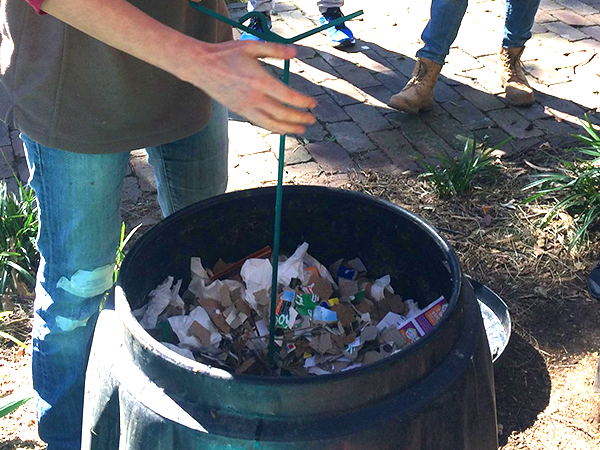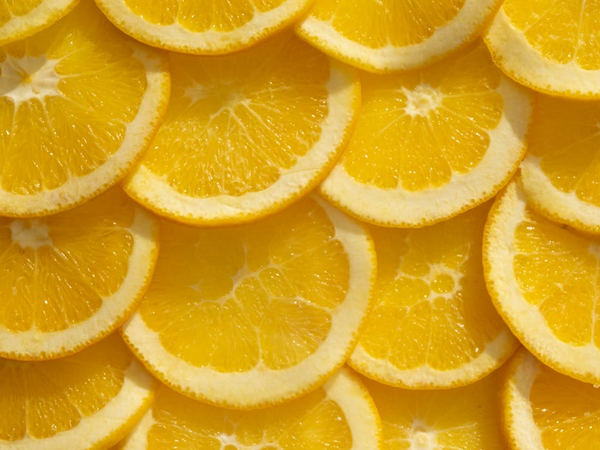
Keeping the bins locked
Our compost bins are locked to help us manage them successfully, making sure that we receive the right kind of waste, thoughtfully disposed of – please see the list in the red panel for items to avoid. Keeping the bins locked also ensures that those that are curing remain untouched, so that nature – and our hard working volunteers – can do the work to produce garden-ready compost. Unfortunately we do also sometimes see needles disposed of in the compost and food scraps bins, which is another reason to keep them locked.

Keeping the compost healthy
A well-managed compost system should not have problems with rats, flies or bad smells. Compost is a living system teeming with life including bacteria, worms, fungi and micro-organisms. These guys do the bulk of the work. Don’t be alarmed when you find soldier fly larvae living in the compost or under the lid. They can help with the composting process. If the compost gets too damp, the system can become acidic and anaerobic. This leads to excessive flies, offensive smells and cockroaches. This is why we need to make sure we add some carbon matter and turn the compost with the aerator when we add waste.

One part greens to two parts browns
All food waste needs carbon matter – such as brown paper or dry leaves to ensure the right balance to keep compost healthy. We ask that when members add their kitchen waste to the bin, they give it a sprinkle with dry carbon matter from the silver bin and a quick stir with the aerator. Many hands make light work and with several bins to manage due to high demand, this takes some of the workload off our dedicated volunteers. We appreciate your cooperation.

Can I compost citrus?
The occasional orange or lemon peel is fine, but if you’re juicing oranges every day, that can overload the compost.
Citrus, garlic and onions should not be added to the worm farms, nor should any of the other items listed in the red panel.
Can I add waste from my Bokashi to the compost bin?
No, Bokashi uses a different system and types of waste that aren’t suitable for our compost system. Bokashi waste can go in the purple lid food scraps bin.
Can I add biodegradable plastic bags?
No, even ‘biodegradable’ plastic takes too long to break down in our simple composting system.
What about the worm farms?
Our worms farms are tended to by volunteers to keep them safe and healthy. Please don’t add any waste to the worm farms.
Do not add these to the compost
Meat, fish, or bones – these encourage rats and can also harbour unhealthy pathogens. There is potential for serious illness, if the resulting compost contaminates the food we are growing.
Wheat/Bread/Rice – attracts rats and can create a fertile breeding ground for the kinds of bacteria that we don’t want in the compost.
Dairy – attracts rats.
Eggshells – These bring the danger of salmonella to the compost. As a living bacteria, salmonella does not generally rot in the compost but rather likes to multiply there.
Dog poo – or other pet poo can carry dangerous parasites.
Plastic – Even ‘biodegradable’ plastic takes too long to break down in our simple composting system.
Teabags – Several tea bag brands use polypropylene, a sealing plastic, to keep their tea bags from falling apart. This plastic is not recyclable or biodegradable. No coffee pods either!
Cooking oil – attracts vermin and can also upset the compost’s moisture balance.
Diseased plants – We don’t want to transfer fungal or bacterial problems to the finished compost.
Stickers or rubber bands – Please remove stickers or rubber bands from fruit or veggies before adding to the compost.
Needles – Well obviously. And yet we sometimes find them in the bins!
Note: If adding cardboard or paper make sure it has to no tape, or stickers on it.

